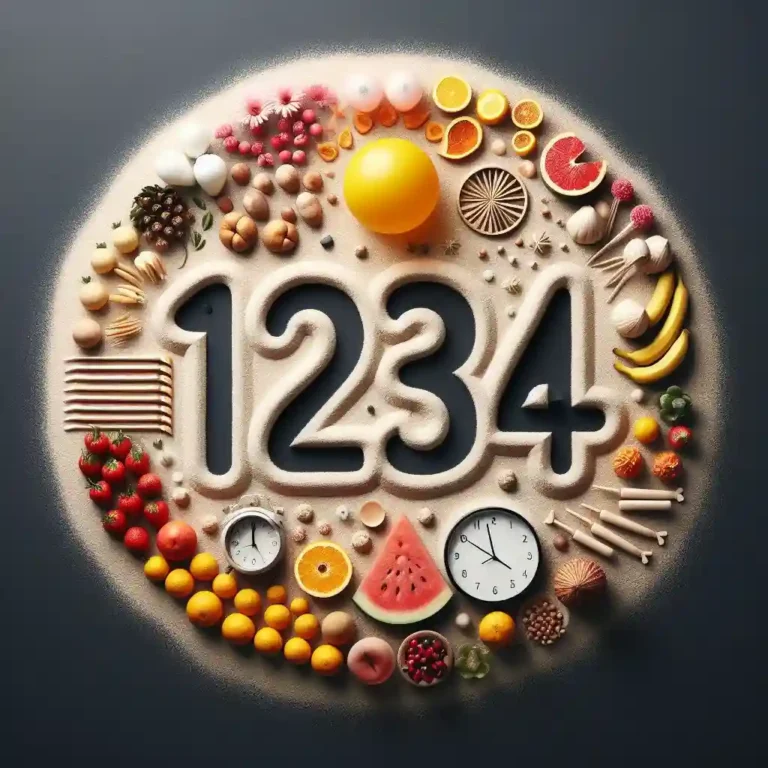The Symbolism of the Full Moon in the Bible: A Spiritual Analysis
As you explore the pages of the Bible, you’ll discover that the full moon holds a profound significance that transcends its monthly appearance in the night sky.
From the blowing of the trumpet in Psalm 81:3 to its timing in the Exodus narrative, the full moon is woven into the fabric of biblical scripture, symbolizing completion, fulfillment, and spiritual illumination. But what lies beneath the surface of these lunar connections?
You’re about to uncover a rich tapestry of symbolism, prophecy, and divine sovereignty that will challenge your understanding of God’s plan and purpose.
Full Moon Biblical Meaning In a Nutshell

- The full moon symbolizes completion, fulfillment, and spiritual illumination in both Old and New Testament passages.
- In the Bible, the full moon is associated with the blowing of the trumpet, signifying a call to worship and celebration (Psalm 81:3).
- The full moon plays a pivotal role in the celebration of Passover, a significant festival in the Jewish calendar, highlighting God’s deliverance and redemption.
- The full moon serves as a celestial reminder of God’s sovereignty over the universe, guiding the Israelites out of Egypt during the Exodus narrative.
- Jesus’ ministry brought spiritual illumination and redemption, reflecting the significance of the full moon, which symbolizes the peak of God’s power and authority.
Lunar Cycles in Scripture
As you plunge into the pages of the Bible, you’ll discover that lunar cycles are frequently referenced, woven into the narrative and spiritual symbolism.
The Bible frequently references lunar cycles, incorporating them into its narrative and spiritual symbolism, with the full moon, in particular, holding significant importance in both Old and New scripture passages.
This lunar significance is evident in the way the full moon is used to symbolize completion, fulfillment, and spiritual illumination.
In Psalm 81:3, the full moon is associated with the blowing of the trumpet, signifying a call to worship and celebration.
However, the Bible also warns against Moon worship, as seen in Deuteronomy 4:19, where God cautions the Israelites against worshiping the moon and other celestial bodies.
This balance between acknowledging the lunar significance and rejecting Moon worship is a recurring theme throughout the scriptures.
As you explore the Bible’s references to lunar cycles, you’ll gain a deeper understanding of the symbolic and spiritual importance of the full moon.

Ancient Israel’s Moon-Based Calendar
You’ll find that the ancient Israelites structured their calendar around the lunar cycle, with the new moon marking the beginning of each month, as evident in the biblical accounts of festivals and sacred events.
This lunar-based calendar was instrumental in governing their daily lives, agricultural practices, and spiritual observances.
The Israelites’ moon-based calendar was distinct from the solar-based calendars used by other ancient civilizations.
Lunar cycles governed daily life: The Israelites’ daily routines, from work to rest, were influenced by the moon phases.
Months began with the new moon: The new moon marked the beginning of each month, signaling a new cycle of activity and spiritual renewal.
Festivals were tied to lunar events: Many biblical festivals, such as the Feast of Trumpets, coincided with specific moon phases, emphasizing the connection between lunar worship and spiritual practices.
Agricultural practices were lunar-based: The Israelites’ agricultural cycles, including planting and harvesting, were often tied to the lunar cycle, reflecting their dependence on the natural world.
Passover and the Full Moon
The full moon plays a pivotal role in the celebration of Passover, a significant festival in the Jewish calendar that commemorates the Israelites’ liberation from slavery in ancient Egypt.
You might be wondering why the full moon is so vital to this celebration. The answer lies in Hebrew astronomy and the moon phases. According to biblical tradition, Passover begins on the 15th day of Nisan, which is always a full moon.
This isn’t a coincidence; it’s a deliberate choice that highlights the symbolic connection between the full moon and liberation. Just as the full moon illuminates the night, so too did God’s presence illuminate the Israelites’ path out of slavery.
As you explore the significance of Passover, you’ll discover that the full moon serves as a powerful reminder of God’s deliverance and redemption. In this framework, the full moon represents freedom, hope, and new beginnings – themes that are central to the Passover narrative.
The Exodus and God’s Redemption
God’s redemption of the Israelites from Egyptian bondage, as recounted in the Exodus narrative, unfolds as a witness to divine intervention, where the full moon serves as a powerful symbol of liberation and freedom.
As you explore this pivotal moment in biblical history, you’ll discover that the full moon’s timing wasn’t coincidental. Rather, it underscores the magnitude of God’s deliverance.
Four key aspects of the Exodus narrative highlight the significance of the full moon:
Moses’ leadership: The full moon’s illumination enabled Moses to lead the Israelites out of Egypt, traversing the treacherous wilderness with confidence.
Israel’s obedience: The Israelites’ willingness to follow Moses, even in the face of uncertainty, demonstrates their trust in God’s plan of redemption.
Divine timing: The full moon’s appearance coincided with the Passover, emphasizing the connection between God’s redemption and the Israelites’ liberation.
Cosmic significance: The full moon’s presence in the Exodus narrative serves as a celestial reminder of God’s sovereignty over the universe, reinforcing the Israelites’ faith in His power and authority.
As you reflect on the Exodus narrative, you’ll come to appreciate the full moon’s role in symbolizing the Israelites’ passage from bondage to freedom, and the enduring significance of this event in the biblical narrative.

Symbolism of Light and Darkness
As you plunge into the symbolism of light and darkness, the full moon’s radiant glow in the Exodus narrative serves as a striking counterpoint to the darkness of Egyptian oppression, illuminating the Israelites’ journey towards liberation.
In this biblical context, moonlight symbolism represents God’s guidance and protection, shining a light on the path to freedom. The full moon’s presence underscores the Lunar opposition between light and darkness, good and evil, emphasizing the Israelites’ struggle for liberation from the darkness of slavery.
This symbolic dichotomy is further reinforced by the contrast between the light of the full moon and the darkness of the ninth plague, where God sent a deep darkness over Egypt, while the Israelites had light in their dwellings.
This stark opposition highlights the distinction between those who walk in the light of God’s presence and those who dwell in darkness, underscoring the significance of the full moon as a symbol of redemption and freedom.
As you excavate deeper into the symbolism of light and darkness, you’ll discover how the full moon’s radiant glow continues to inspire hope and liberation in those seeking freedom from spiritual darkness.
The Full Moon and Spiritual Warfare
Frequently, during full moon phases, spiritual warriors report heightened senses of awareness and intensified battles against dark forces, underscoring the moon’s significance in spiritual warfare. You may find yourself more attuned to the spiritual domain, sensing the presence of evil forces more acutely. This lunar cycle can be a catalyst for moonlit battles, where the light of truth and righteousness clashes with the darkness of deception and evil.
Four key aspects to ponder during full moon spiritual warfare:
Dark forces rise: The full moon can amplify the presence and influence of dark forces, making it essential to remain vigilant and grounded in your faith.
Increased spiritual sensitivity: You may experience heightened intuition, discernment, and perception, allowing you to better navigate the spiritual battlefield.
Amplified prayer and intercession: The full moon’s energetic resonance can amplify your prayers and intercessions, making them more potent in the spiritual domain.
Divine protection and guidance: As you engage in spiritual warfare, remember that you aren’t alone; God’s protection and guidance are available to you, providing a shield against the enemy’s attacks.
Jesus and the Festival of Tabernacles
During the full moon, when spiritual warriors are often busied with battles against dark forces, it’s worth exploring how Jesus interacted with the Festival of Tabernacles, a celebration that took place during the full moon phase of the Hebrew month of Tishrei.
You might wonder what significance this ancient Jewish festival holds in relation to Jesus’ ministry. The Festival of Tabernacles, also known as Sukkot, commemorates the Israelites’ wilderness journey and God’s provision.
Jesus’ presence at this festival is recorded in John 7:2-39, where he boldly declared, ‘If anyone is thirsty, let them come to me and drink’ (John 7:37).
This statement holds profound significance, as Jesus was standing in the Temple courtyard, where water was being poured out as an act of worship. Jesus’ words were a declaration of his fulfillment of the Temple’s significance, offering living water to a thirsty world.
As you reflect on the full moon, consider how Jesus’ ministry brought freedom and redemption, illuminating the true meaning of this ancient celebration.
Daniel’s Prophecy and the Moon
As you excavate into the book of Daniel, a prophecy unfolds that intriguingly connects the moon with the end times, revealing a profound significance that warrants exploration. The prophecy speaks of a time when the moon will be affected by the approaching end, which is a pivotal aspect of understanding Moon Mysteries. You’ll notice that Daniel’s prophecy patterns are woven throughout the narrative, offering a glimpse into the future.
Four key aspects of Daniel’s prophecy that highlight the moon’s significance are:
- The moon’s role in apocalyptic events: Daniel’s prophecy foretells a time when the moon will be affected by the approaching end, hinting at a profound connection between the lunar cycle and the unfolding of end-time events.
- A lunar signal for the Messiah’s return: The prophecy suggests that the moon will play a role in signaling the Messiah’s return, emphasizing the importance of understanding lunar patterns in relation to prophecy fulfillment.
- The moon as a harbinger of judgment: Daniel’s prophecy portrays the moon as a harbinger of judgment, underscoring the need to recognize the moon’s significance in the context of end-time prophecy.
- The lunar cycle and prophetic timelines: The prophecy reveals a connection between the lunar cycle and prophetic timelines, encouraging you to explore the intricate relationships between celestial bodies and prophecy patterns.
End-Time Prophecies and the Moon
What role does the moon play in end-time prophecies, and how do its cycles intersect with the unfolding of these events?
As you explore into the study of biblical eschatology, you’ll discover that the moon’s cycles hold significant implications for understanding the timeline of end-time prophecies. The moon’s correlations with cosmic events, such as solar eclipses and blood moons, are often seen as omens or signs of impending judgment or redemption.
Many biblical scholars believe the moon’s cycles are intricately tied to the unfolding of God’s plan for humanity. For instance, the lunar cycle’s 29.5-day period is thought to symbolize the 29.5 years it takes for a generation to pass, as mentioned in Psalm 90:10. This correlation has led some to speculate about the moon’s role in signaling the approaching end times.
As you examine the moon’s cosmic significance, you’ll begin to appreciate the intricate web of connections between celestial events and biblical prophecy. The moon’s cycles serve as a celestial clock, marking the passage of time and underscoring the urgency of humanity’s redemption. By recognizing the moon’s role in end-time prophecies, you’ll gain a deeper understanding of the grand tapestry of God’s plan for humanity.
God’s Sovereignty in the Heavens
Exploring the celestial domain, you’ll discover that God’s sovereignty extends to the heavens, where the moon’s cycles and cosmic events are intricately woven into the fabric of divine providence.
The full moon, in particular, holds significant importance in biblical meaning, as it symbolizes the peak of God’s power and authority.
As you plunge deeper into the celestial sphere, you’ll find that God’s sovereignty isn’t limited to the earth, but encompasses the entire universe.
Celestial Rulers: God has established rulers in the heavens, governing the movements of celestial bodies, including the moon, to maintain order and harmony in the universe.
Divine Ordinance: The cycles of the moon and other celestial events are ordained by God, serving as a reminder of His sovereignty and divine plan.
The heavens declare God’s glory, with the full moon being a reflection of His power and majesty.
God’s sovereignty in the heavens is a reflection of His sovereignty on earth, emphasizing His authority and control over all creation.
As you explore the full moon’s biblical meaning, remember that God’s sovereignty isn’t limited to the earth, but extends to the vast expanse of the universe, where He reigns supreme.
Frequently Asked Questions
Does the Full Moon Have an Effect on Human Behavior and Emotions?
You’ve wondered if the full moon affects human behavior and emotions; research suggests it does, as Moon cycles can amplify Emotional triggers, influencing mood and actions, although individual responses vary greatly, making it a complex phenomenon to fully grasp.
Is There a Connection Between the Full Moon and Demonic Activity?
You’re exploring the link between the full moon and demonic activity, wondering if moonlit possessions are real. Research suggests dark energies may amplify during full moons, but a direct cause-and-effect connection remains speculative, warranting further investigation.
Can the Full Moon Be Used for Divination or Fortune-Telling?
You explore the possibility of harnessing the full moon’s energy for divination or fortune-telling, considering the concept of moon magic and lunar omens, where celestial events are believed to influence human affairs, sparking introspection and self-awareness.
How Does the Full Moon Impact Dreams and Intuition?
As you tap into lunar consciousness, you may find your mystical awareness heightens, allowing your dreams to become more vivid and your intuition more acute, as the full moon’s energy amplifies your inner world.
Are There Specific Prayers or Rituals for the Full Moon in Christianity?
You explore Christian full moon rituals, discovering that while there aren’t specific prayers, many incorporate moonlit worship and lunar reflection to amplify spiritual connection, fostering a deeper sense of freedom and inner illumination.

Hi, I’m Aurelia Starfrost, your spiritual guide at InsightfulSpiritual.com. I love exploring ancient wisdom and modern practices to help you on your journey. With a focus on meditation and energy healing, I’m here to guide you to find solace within and discover your spiritual essence.







